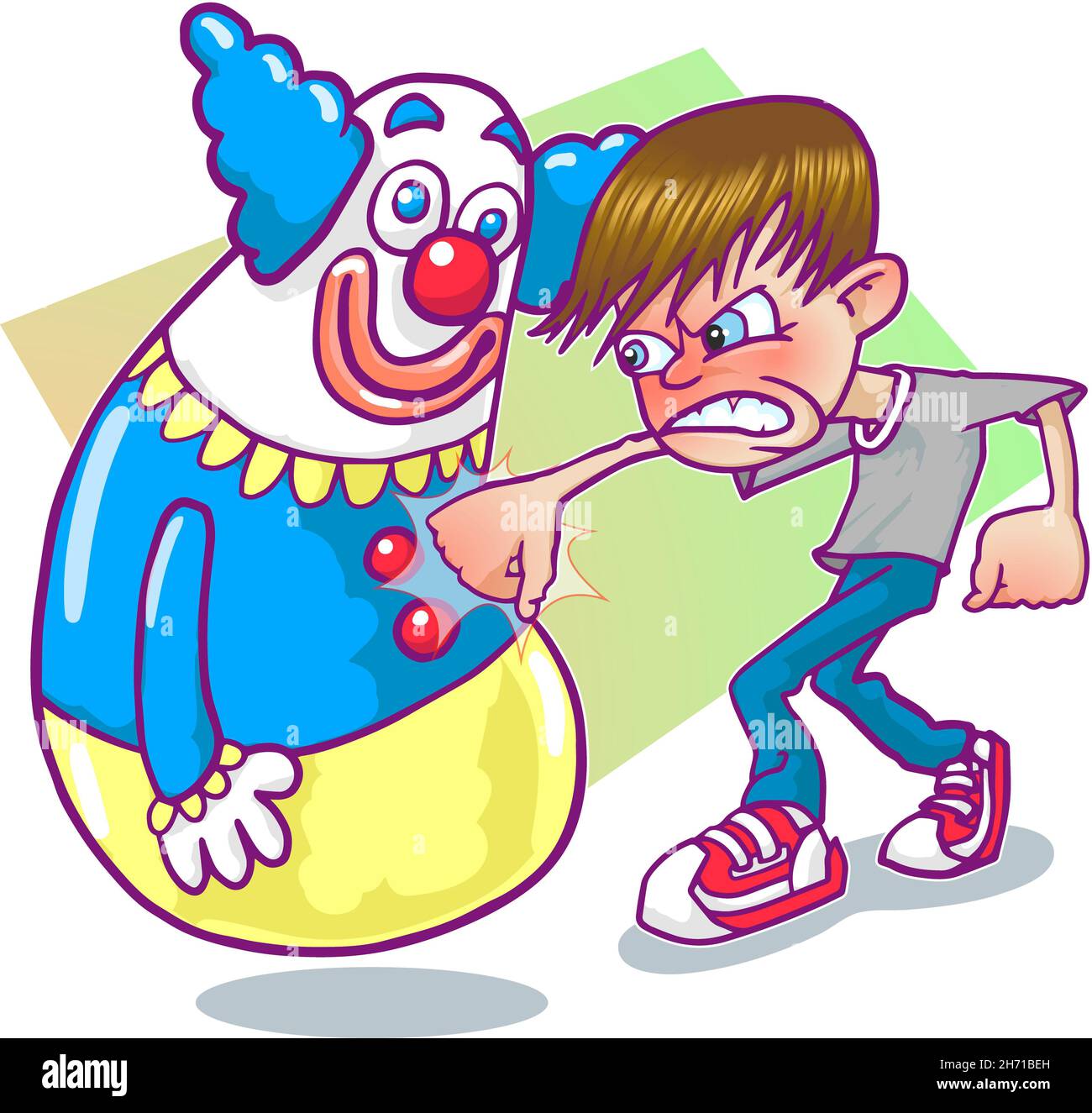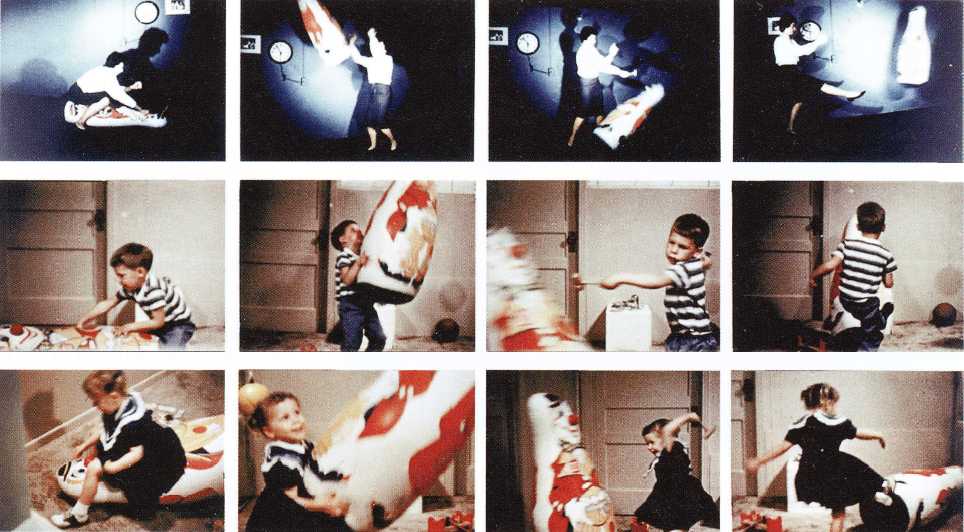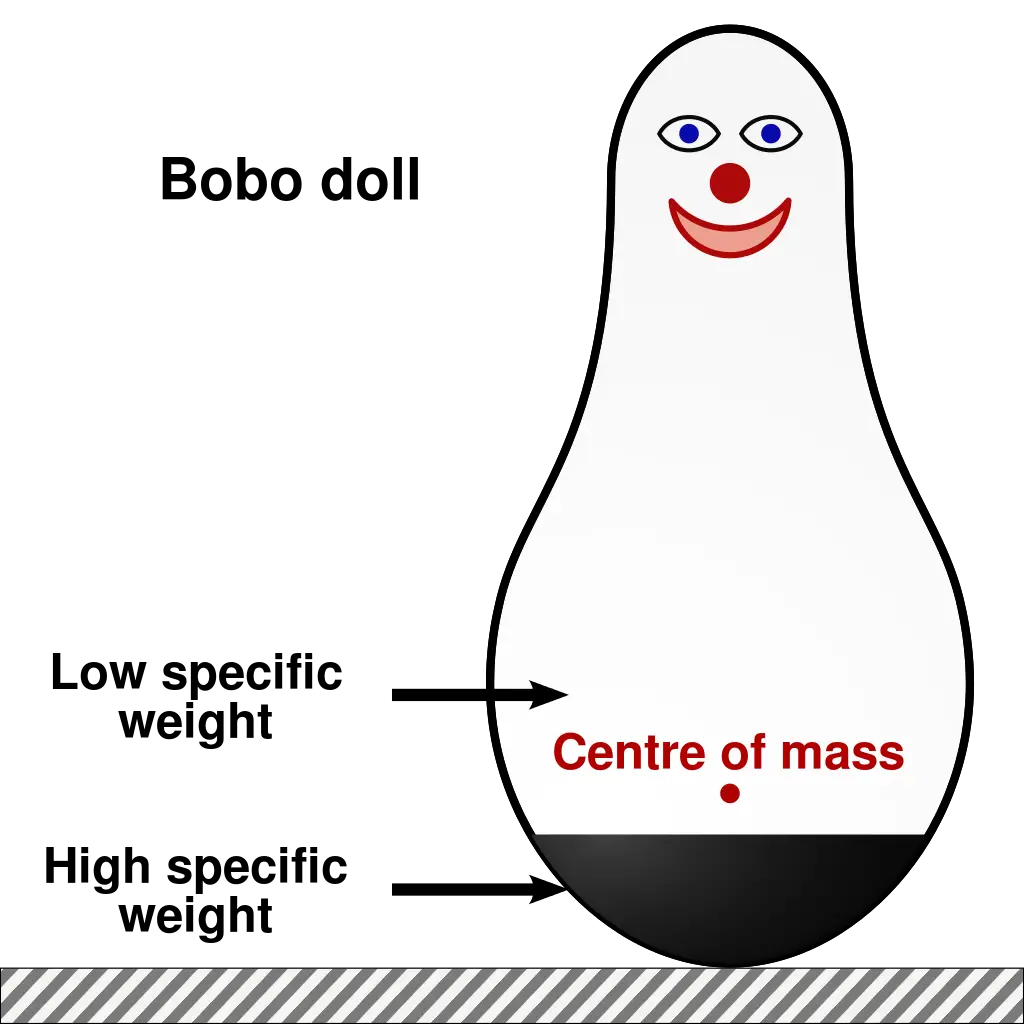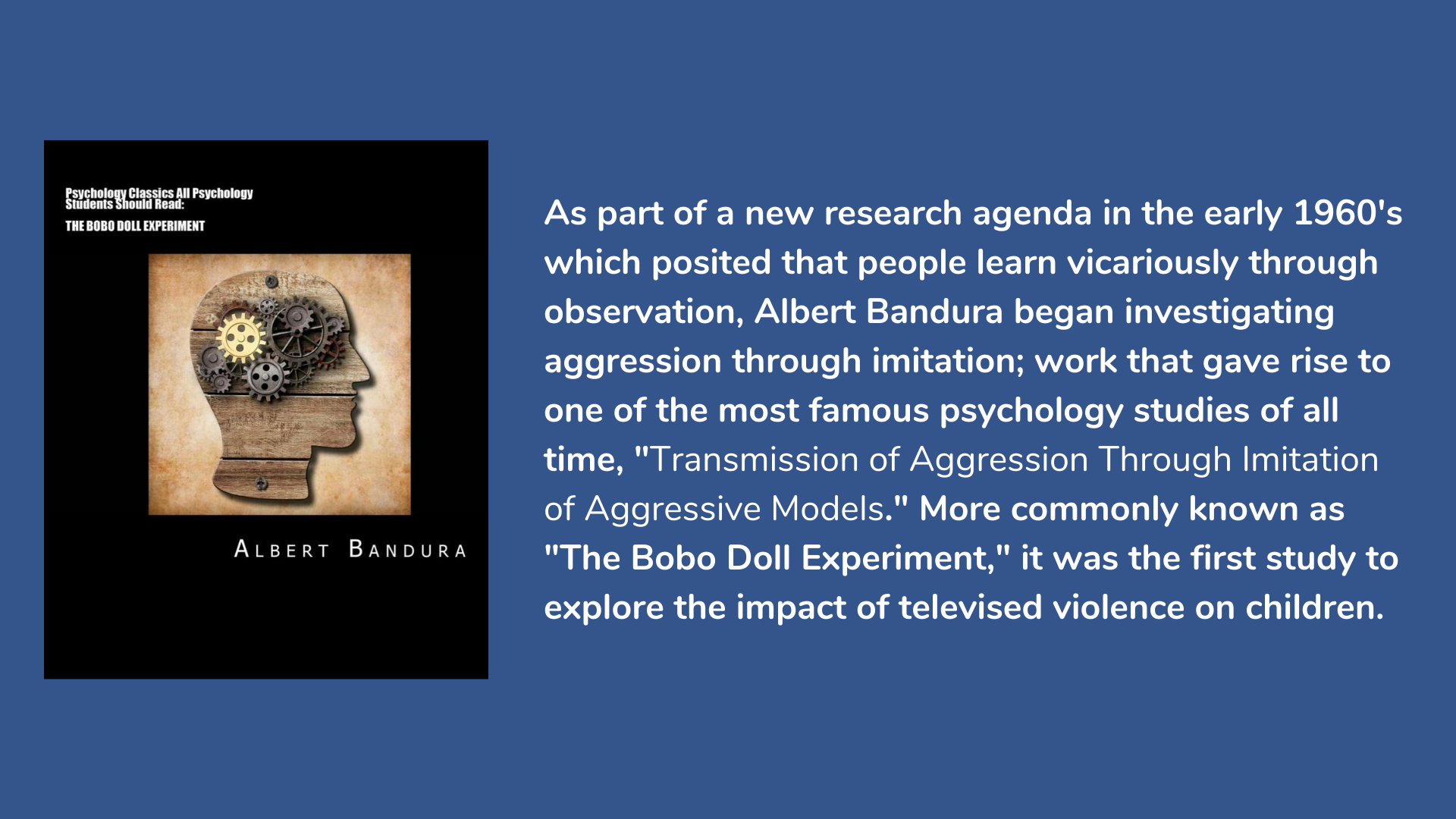
Bobo Doll Experiment Storyboard by a559fd4b
An explanation of the Bobo Doll Experiment, how it demonstrated learning performance distinction, and resulted in Bandura's Social Cognitive Theory. By Jeffrey Walsh. . Created by Jeffrey Walsh. Questions Tips & Thanks Want to join the conversation? Sort by: Top Voted Roman Smirnov 10 years ago

Psych Your Mind Friday Fun? See a clip of the classic Bobo Doll experiment
The Bobo doll experiment (or experiments) is the collective name for a series of experiments performed by psychologist Albert Bandura to test his social learning theory. Between 1961 and 1963, he studied children's behaviour after watching an adult model act aggressively towards a Bobo doll.

Download this stock image The Bobo Doll Experiment 1960s art
The Bobo doll experiment was conducted by Albert Bandura in 1961 [ 1] and studied patterns of behavior associated with aggression. Additional studies of this type were conducted by Bandura in 1963 [ 2] and 1965. A Bobo doll is an inflatable toy that is approximately the same size as a prepubescent child.

Bandura’s bobo doll study Cut Out Stock Images & Pictures Alamy
Abstract. Developmental social psychologist Albert Bandura's 1961 Bobo doll experiments provide interesting insights for the field of education for sustainable development (ESD) today. This article discusses some of the implications Bandura's model of learned aggression has for modelling learned unsustainability.

Albert Bandura, Bobo Doll experiment
Bobo doll experiment, groundbreaking study on aggression led by psychologist Albert Bandura that demonstrated that children are able to learn through the observation of adult behaviour.

çita dürtü zincirleme seri albert bandura bobo doll sankyofrontier
75 of The Top 100 Retailers Can Be Found on eBay. Find Great Deals from the Top Retailers. eBay Is Here For You with Money Back Guarantee and Easy Return. Get Your Doll Today!

Bobo doll experiment
Download PDF In 1961, children in APS Fellow Albert Bandura's laboratory witnessed an adult beating up an inflatable clown. The doll, called Bobo, was the opposite of menacing with its wide, ecstatic grin and goofy clown outfit.

Barb, our inhouse Albert Bandura, attempts to replicate the Bobo doll
What the Bobo Doll Experiment Reveals About Kids and Aggression By Kendra Cherry, MSEd Updated on December 28, 2022 Fact checked by Emily Swaim Imgorthand / Getty Images Table of Contents The Experiment Impact Criticism The question of how children learn to engage in violent behavior has been of great interest to parents and researchers alike.

10 Psychological Experiments That Went Way Too Far Health Journal
Albert Bandura's influential Bobo doll experiments reveal how children imitate TV violence and the behavior of others. 208 In 1961, the Canadian-American psychologist, Albert Bandura (1925-) conducted a controversial experiment examining the process by which new forms of behavior - and in particular, aggression - are learnt.

The Bobo Doll Experiments Rag Dolls and Rage
Bandura's Bobo Doll Experiment on Social Learning By Saul Mcleod, PhD Updated on June 14, 2023 Reviewed by Olivia Guy-Evans, MSc During the 1960s, Albert Bandura conducted a series of experiments on observational learning, collectively known as the Bobo doll experiments. Two of the experiments are described below: Aim

The 25+ best Bobo doll experiment ideas on Pinterest Social cognitive
Bandura's Bobo Doll Study is one of the most famous studies in social psychology. It challenged the existing view that behaviour came from internal forces and showed that it can be influenced by copying the behaviour of those around us. Cartoon Film-Aggression: Everything was the same as the other two conditions from the child's point of.

çita dürtü zincirleme seri albert bandura bobo doll sankyofrontier
The Bobo doll experiment. In 1961 Bandura carried out his famous Bobo doll experiment, a study in which researchers physically and verbally abused a clown-faced inflatable toy in front of preschool-age children, which led the children to later mimic the behaviour of the adults by attacking the doll in the same fashion. Subsequent experiments in.

waldentwo Bandura's Social Learning Theory
Seems that an experiment like the Bobo doll, if done today, would invite the ire of a lot of ethics boards. A kid could feel threatened with a guy screaming and punching for a good ten minutes. Suppose psychologists would need to replicate something like this for a study, what are the limits on designing the experiment that will not cause undue.

The Bobo Doll Experiment Psychestudy
The Bobo Doll Experiment. Bandura's Bobo Doll experiment is one classic in the field of observational learning. In all, this experiment showed that children could and would mimic violent behaviors simply by observing others. In these experiments, Bandura (1985) and his researchers showed children a video where a model would act.

7 Awesome Gifs Psychology Students Will Love
The original Bobo doll experiment was conducted by Bandura et al. ( 1961) using a 5-ft inflatable clown (the Bobo doll) to demonstrate that children can learn aggressive behavior in the absence of any rewards and solely by observing the behavior of an adult model. Introduction

IV. SocialCultural Approach Disorder and Treatment Site Saracino
Courtney Beatey, B.Ed The Bobo Doll Experiment was a study by Albert Bandura to investigate if social behaviors can be learned by observing others in the action. According to behaviorists, learning occurs only when a behavior results in rewards or punishment.